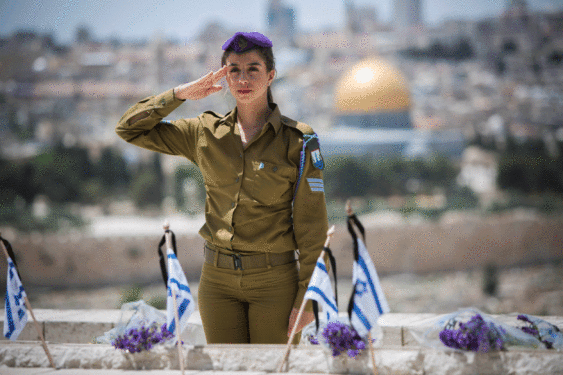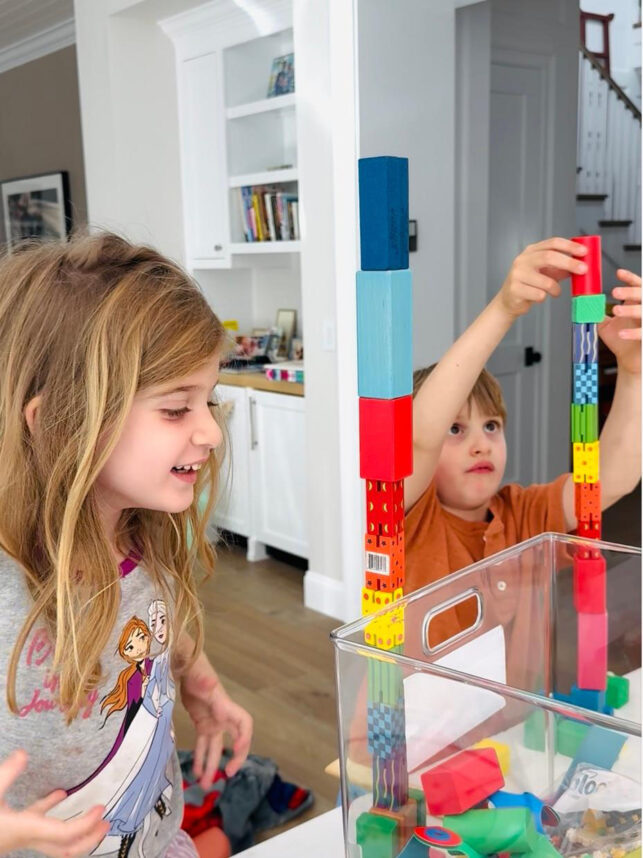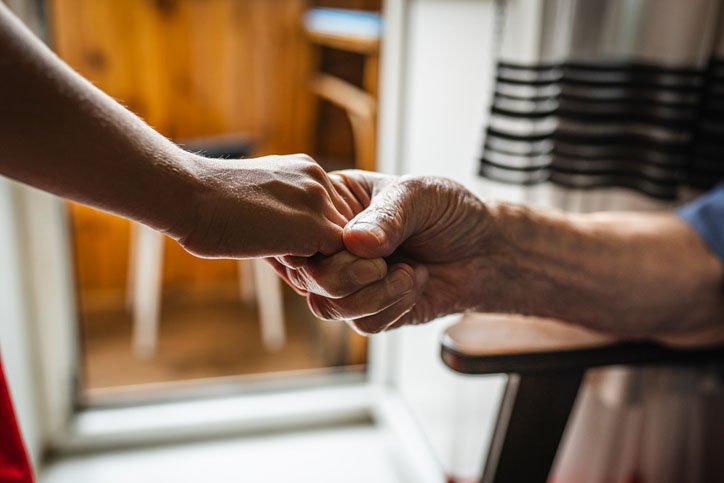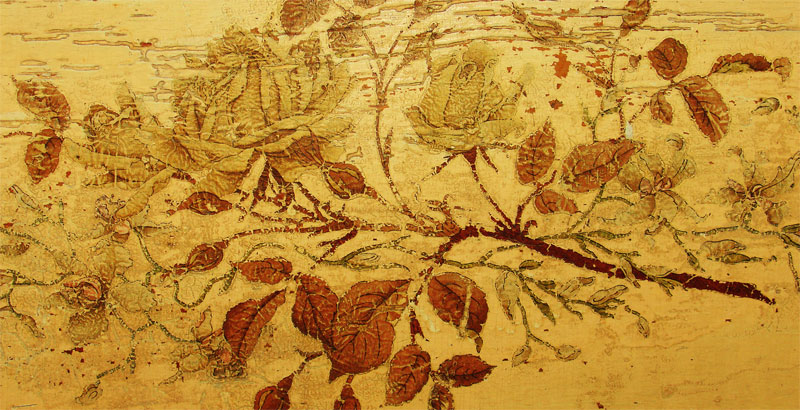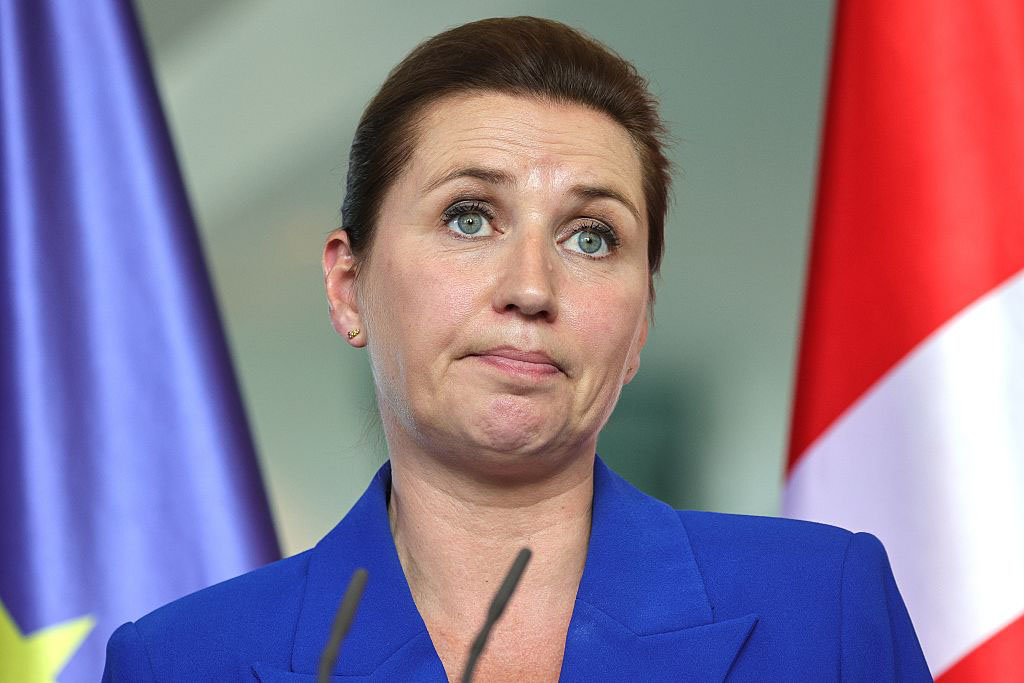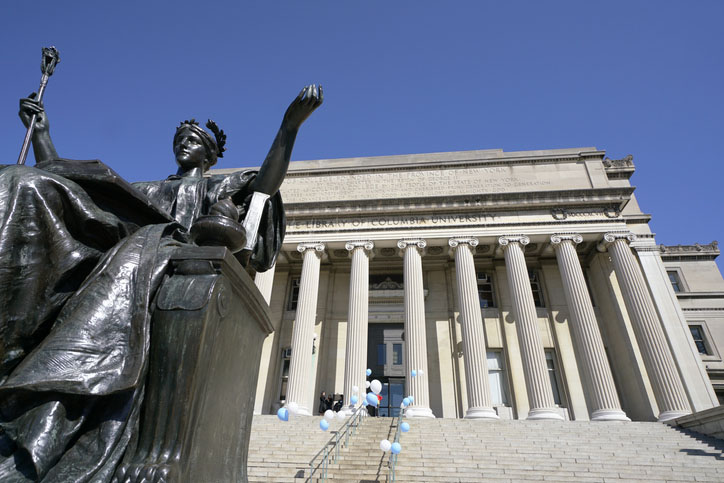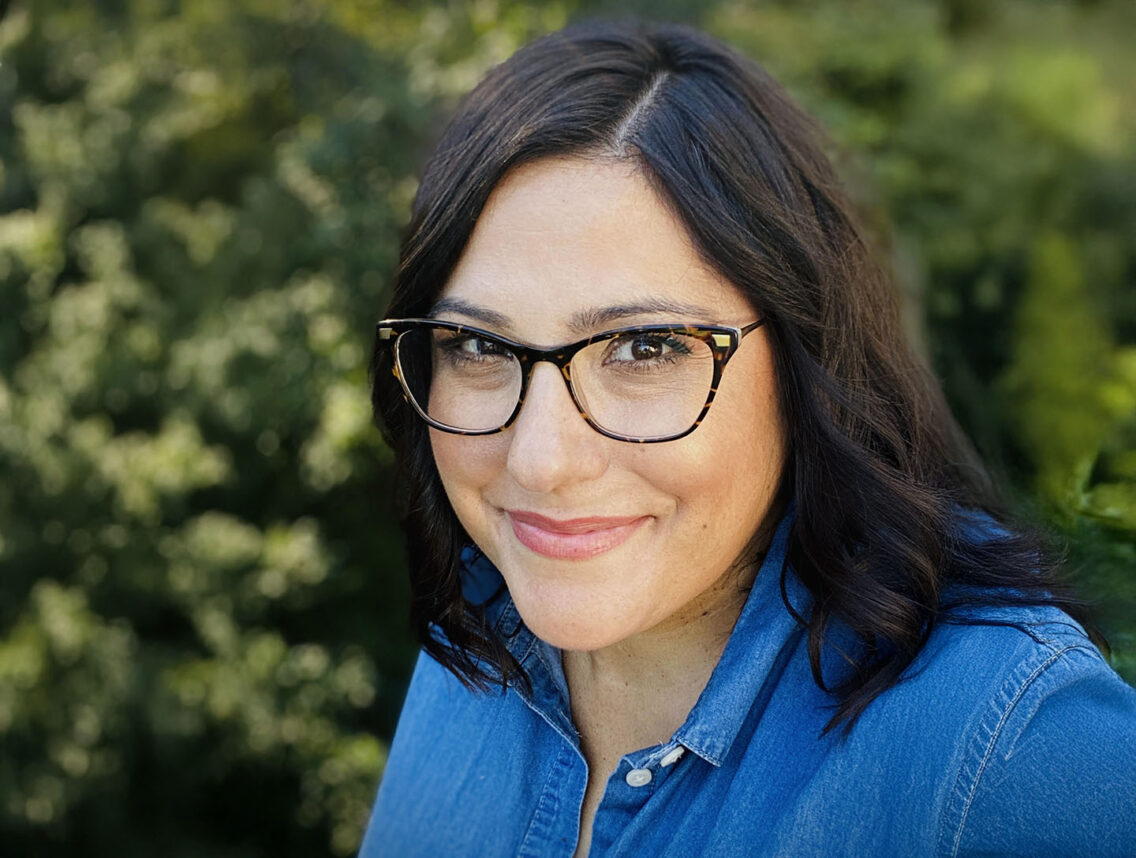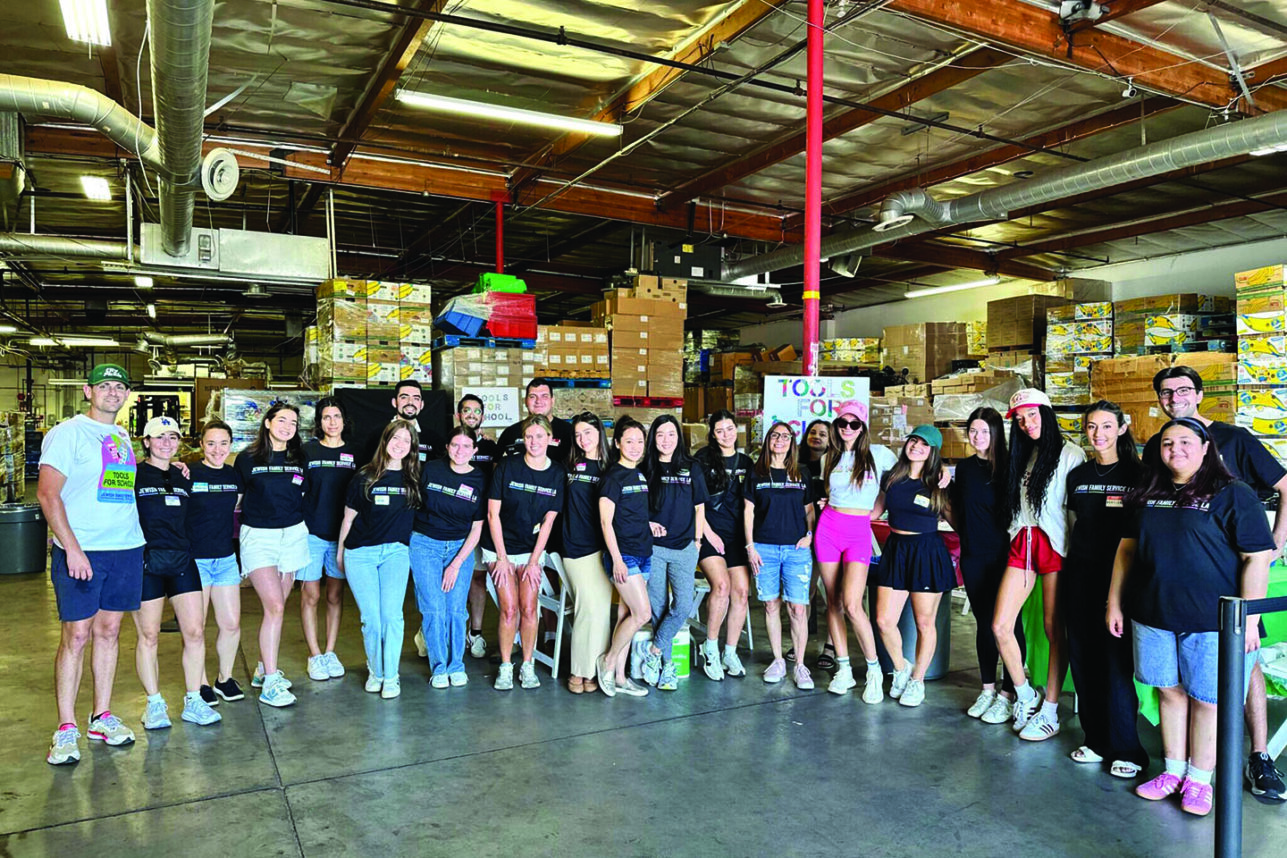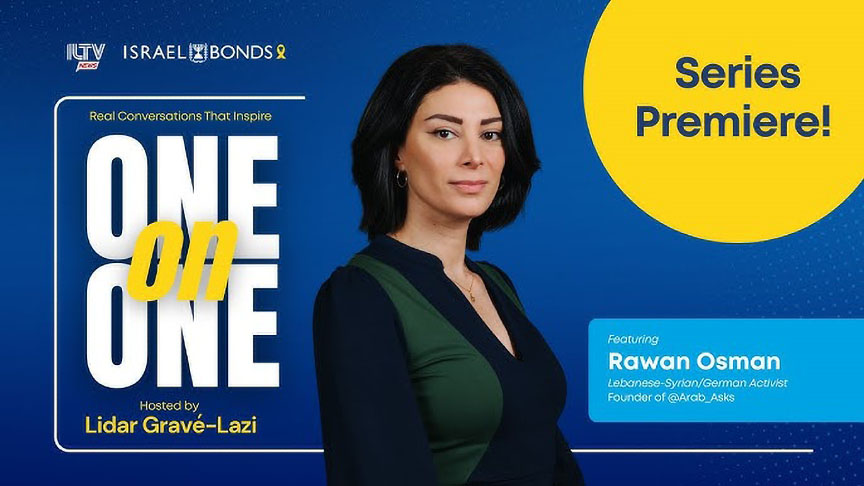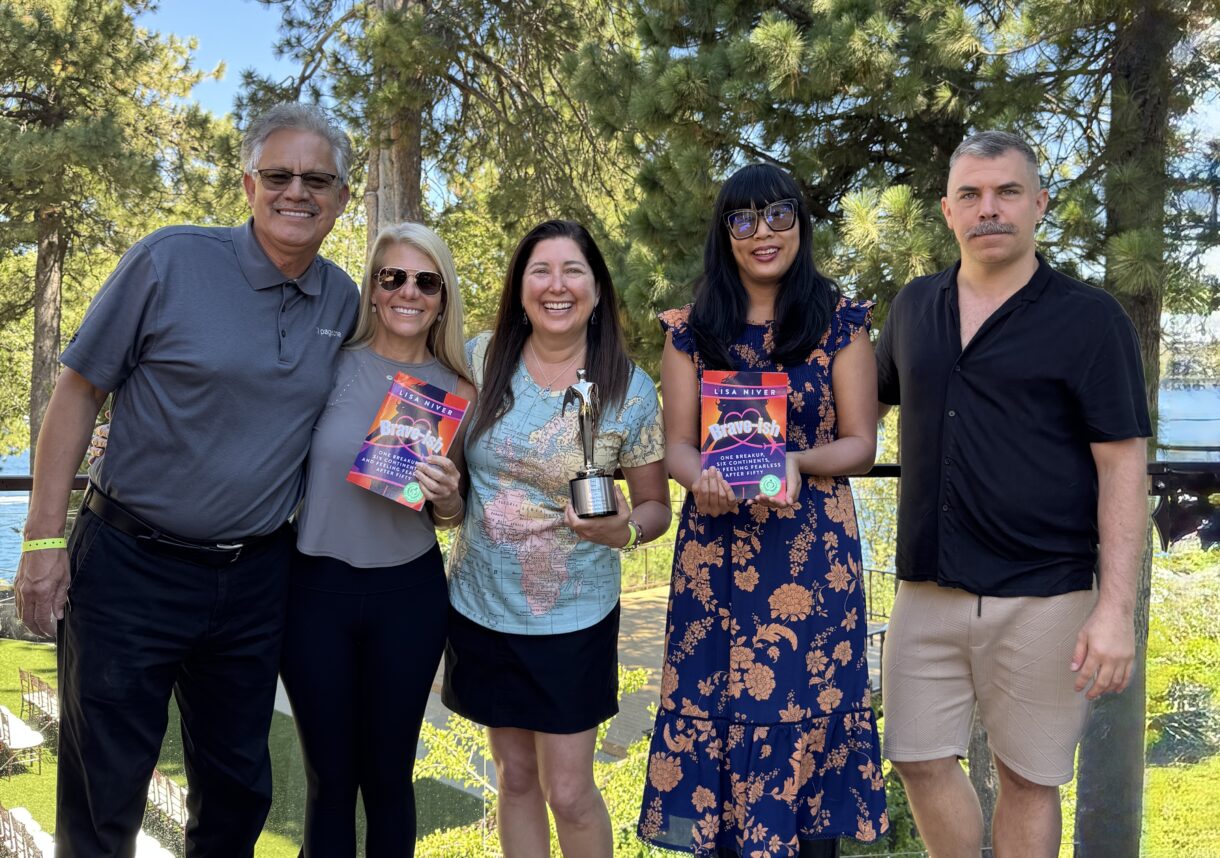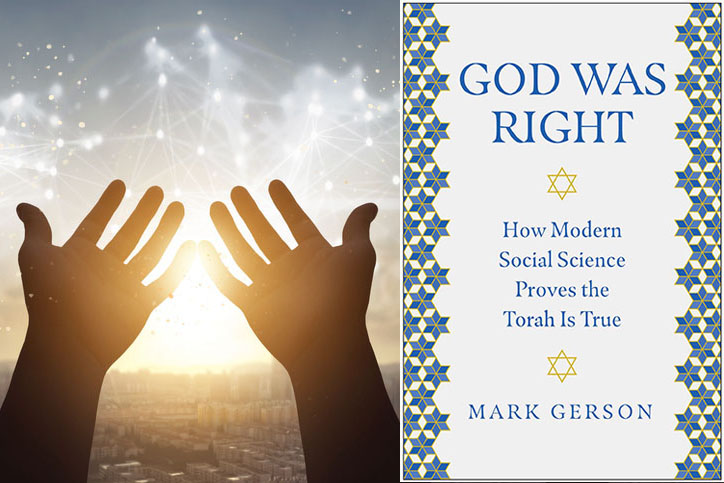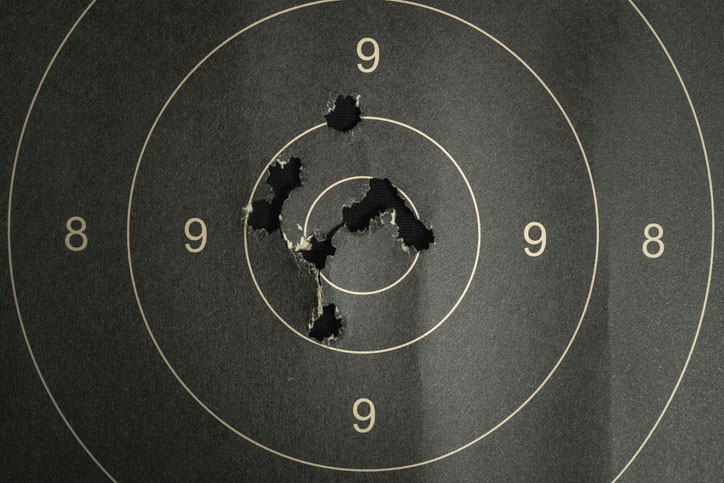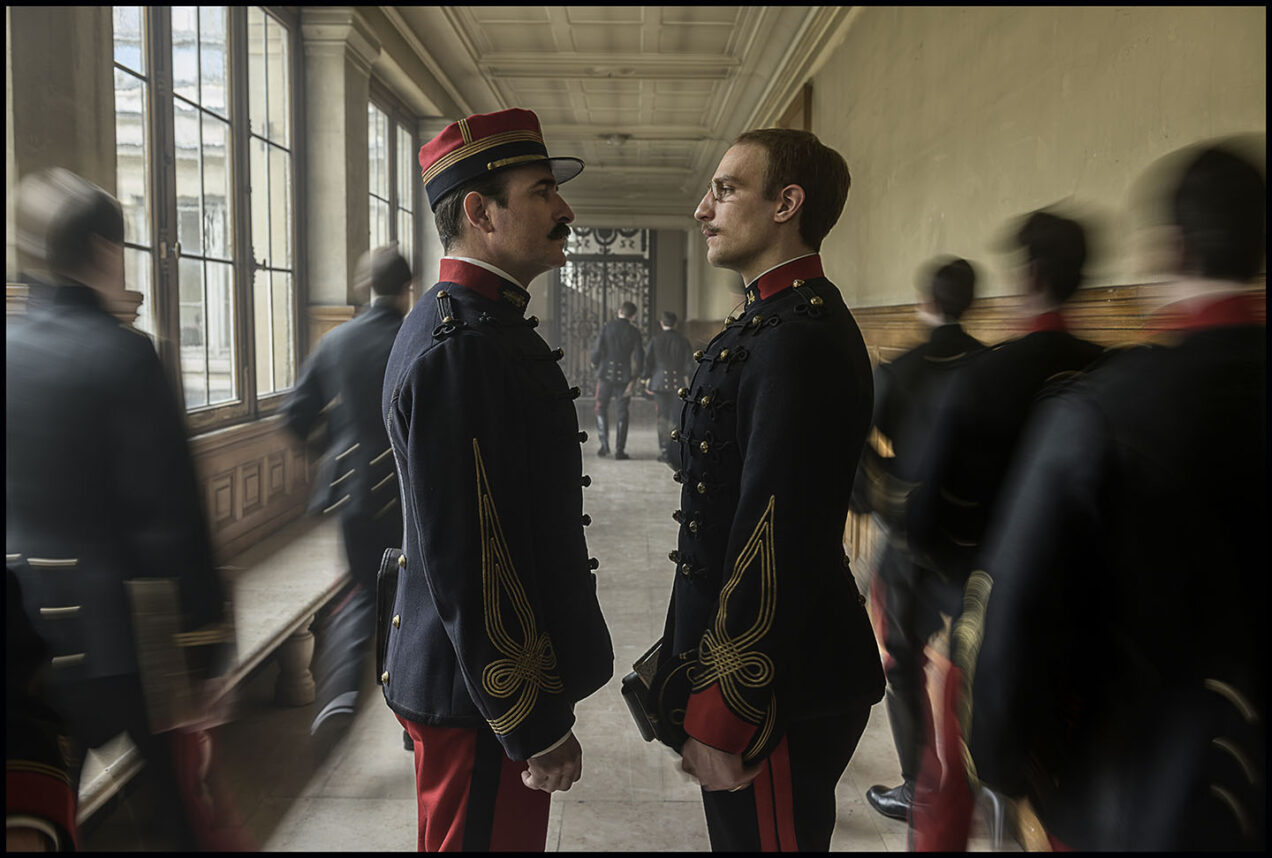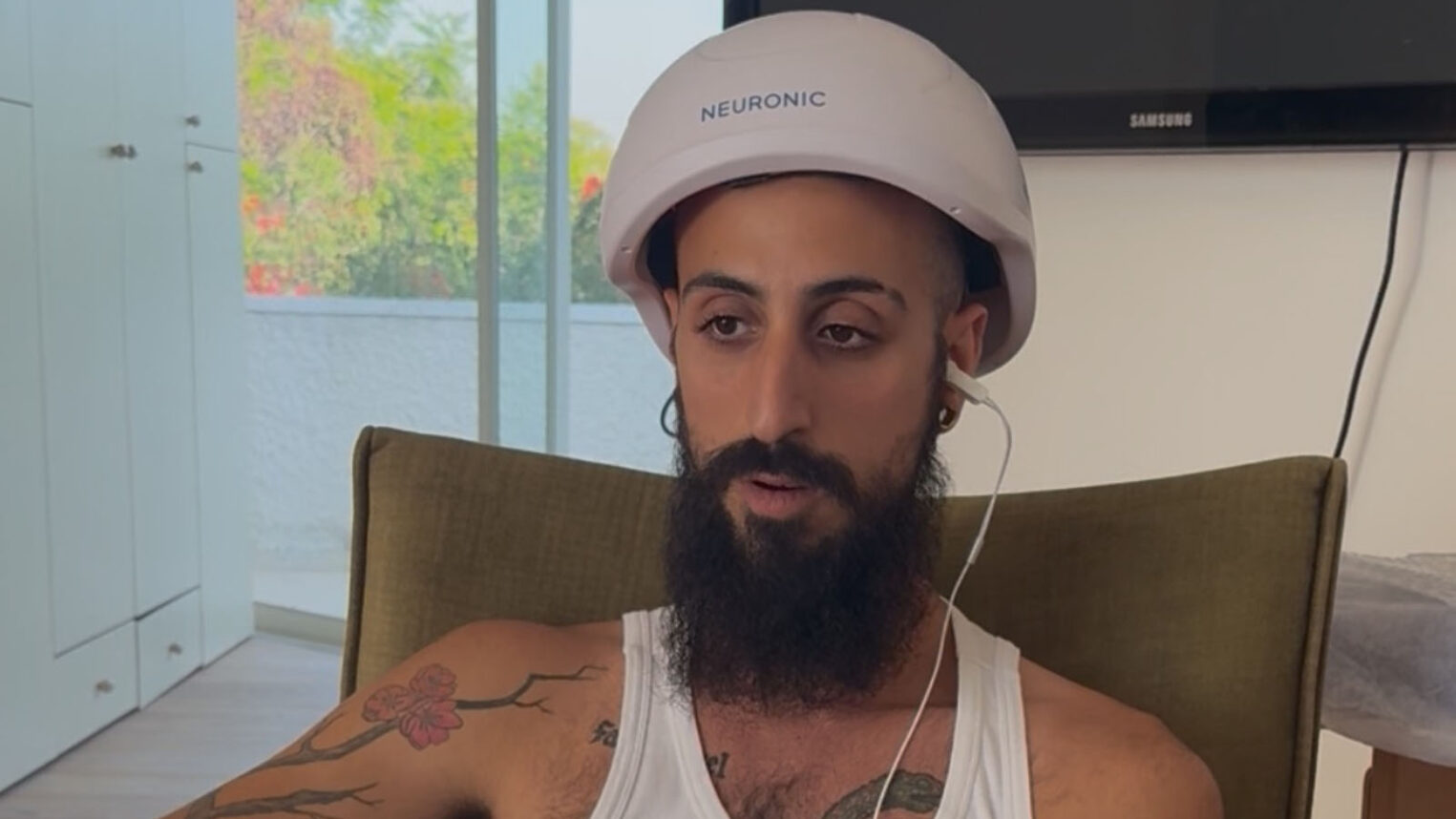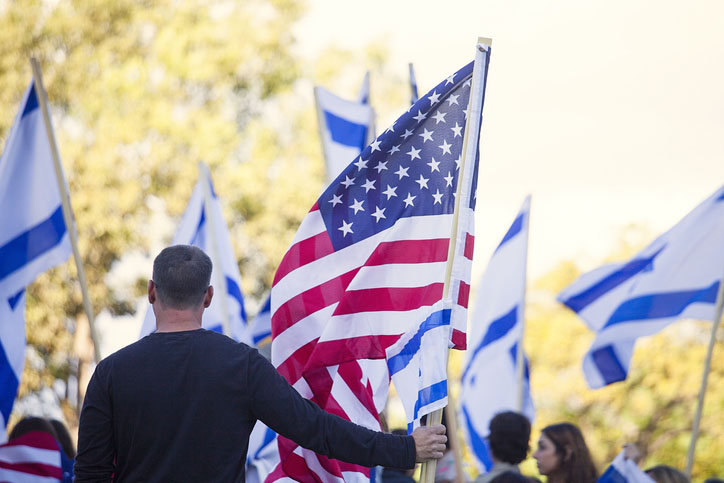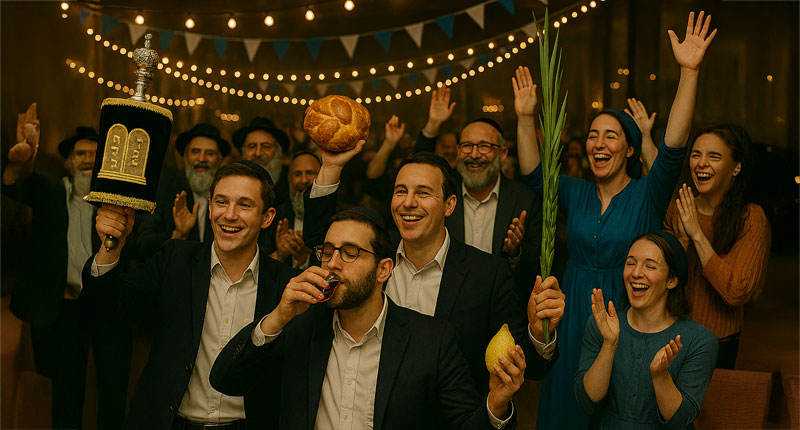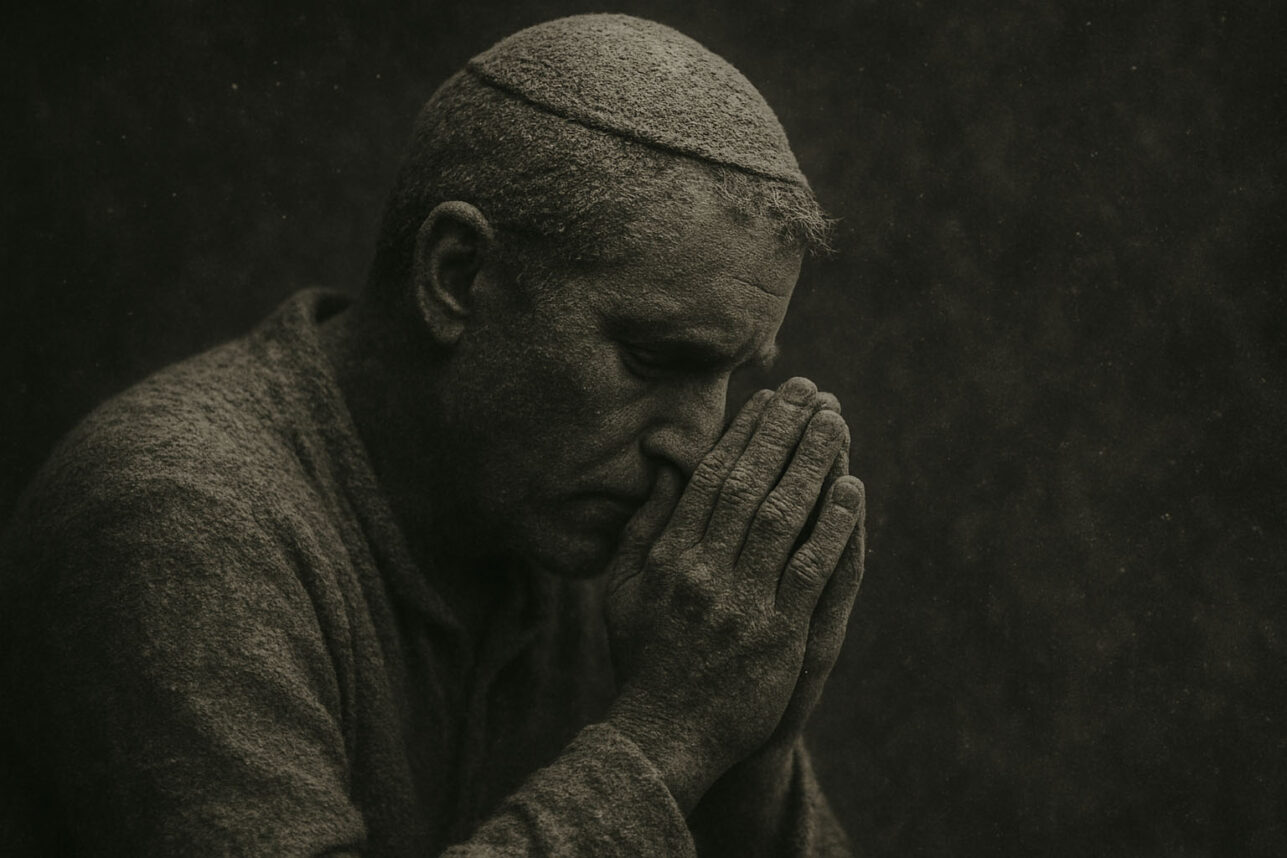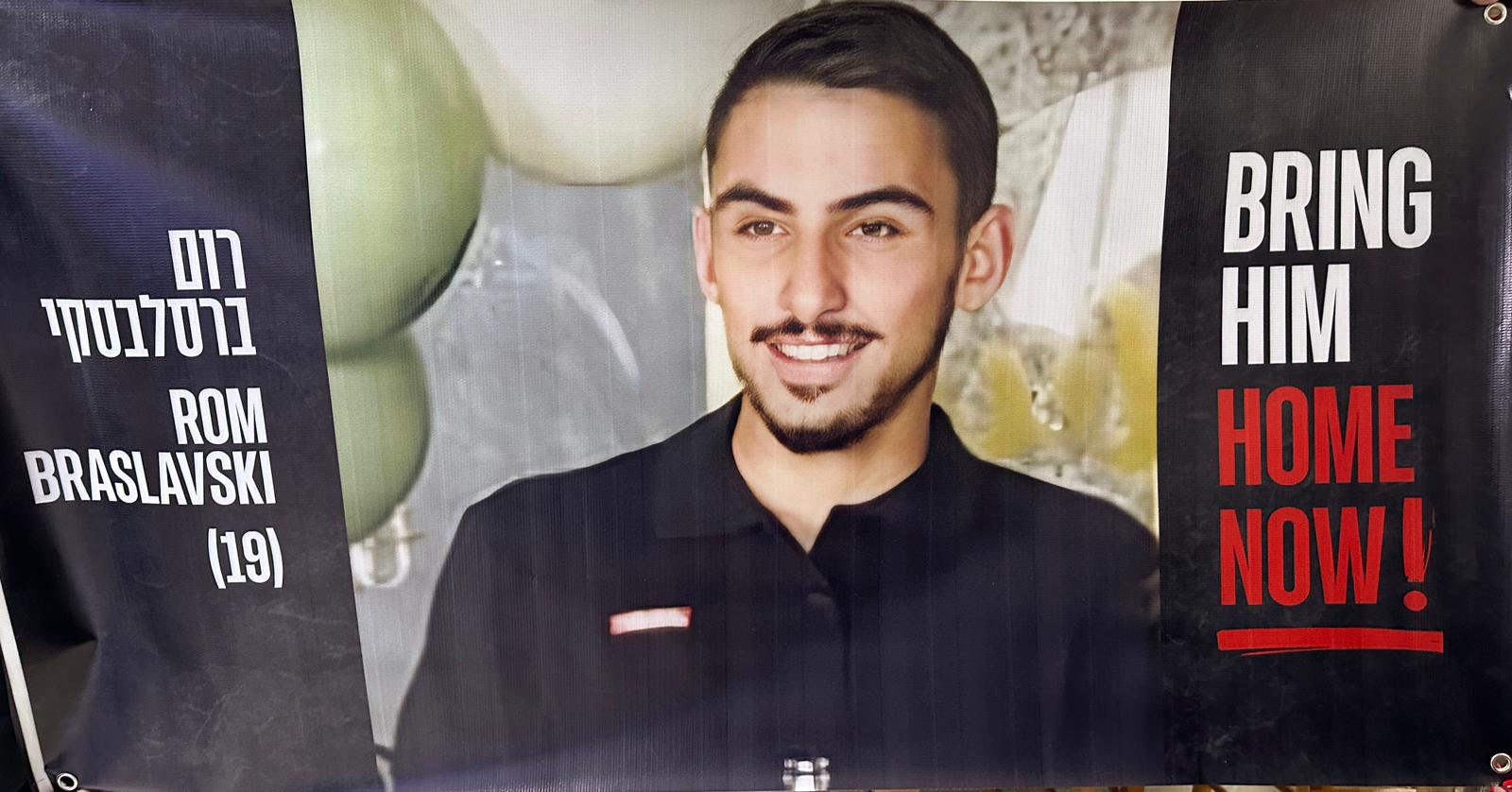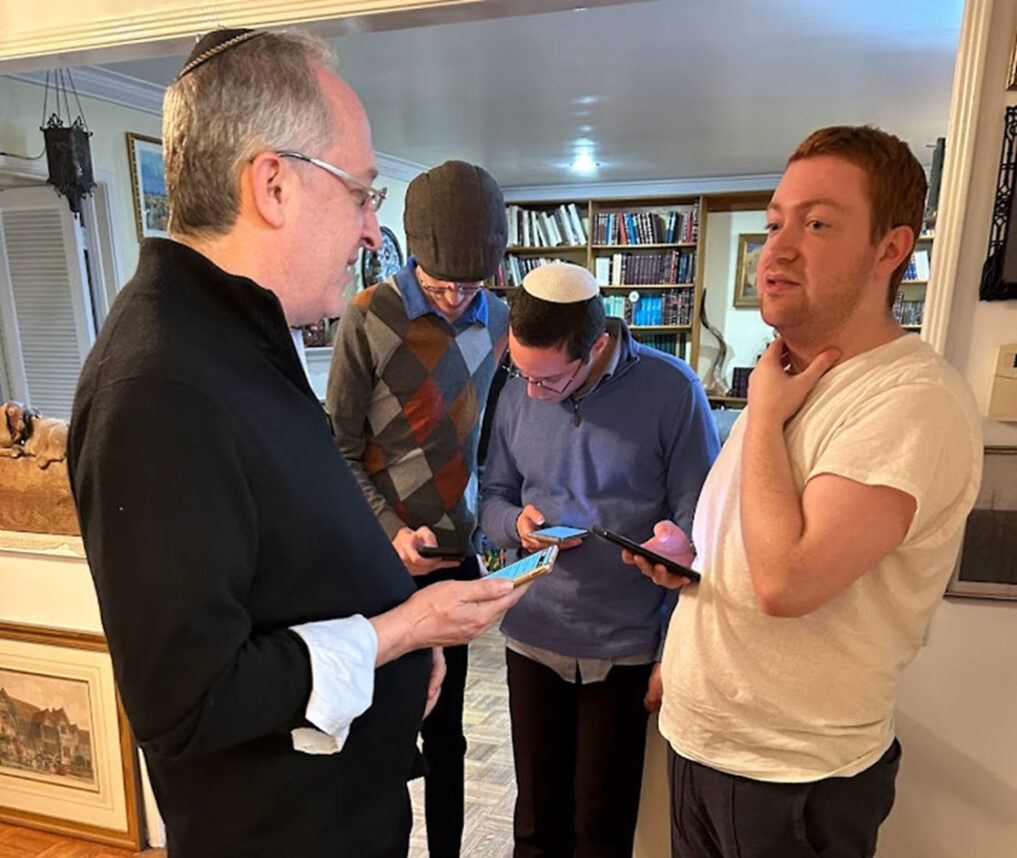My father doesn’t believe in Father’s Day.
I mean he knows it exists, but he doesn’t celebrate it because it’s not a Jewish holiday.
When my three siblings and I were growing up in Brooklyn, he wouldn’t allow us to go to New Year’s parties, because they celebrate the birth of JC, as he was referred to, if he were referred to at all. Ditto, Halloween and trick or treating, because the whole thing was pagan. Whatever that meant. Goyishe was the term we used: gentile. Not Jewish. Not Religious.
For us, it was all the same thing. Everyone we knew was religious. My family, my friends, my parents’ friends, my schoolmates, everyone.
Maybe you think it’s weird to grow up so sheltered, among such homogeny, maybe even I think it’s weird, but that’s only now, only sometimes. Then? Then it was all I knew. It was normal. We were normal.
Normal back then meant Modern Orthodox — that we kept kosher and celebrated Shabbat and holidays. We went to coed yeshivas and sleepaway camps; we wore skirts to school, pants and shorts at home and bathing suits at the beach.
There’s a joke about religion that anyone more religious than you is crazy, and anyone less than you — a goy! And that was our family: not super-religious black-hat like most of my father’s family, who attended separate schools and studied in kollel yeshivas instead of college, and definitely not Conservative or “not religious,” as we equated it, like much of my mother’s family, who went to Solomon Schecter and drove on Saturdays. (Not to our house; they weren’t allowed.) We weren’t like them. We were just … normal.
In today’s increasingly polarized religious world, the Modern Orthodoxy I grew up with hardly exists, but that’s nishta hin, nishta heir — Yiddish for neither here nor there — because I’m no longer Orthodox. How I left Orthodoxy, why I left Orthodoxy, well, that’s a long story, and a different one. This is the story of how it affected my relationship with my family, particularly my father.
See, he was the driving force behind our religious education.
My father always says that he became more religious in Vietnam. After attending Yeshiva University — he was captain of the wrestling team — he went to dental school at Temple University in Philadelphia. “It wasn’t easy for us then,” he liked to tell us, about being the only religious Jew, forced to attend classes on Shabbos and holidays. In fact, one of the reasons he decided to become a dentist instead of a doctor was because he didn’t want to deal with the halachic problems — the religious conflicts doctors must face. He served in the Vietnam Medical Corps from 1967-1968. He never really talked much about his years in Vietnam, except to say that the experience strengthened his faith and practice of a religion that, I assume, might have been strictly rote beforehand.
Maybe that was why it was so difficult for him to see me leave something he’d fought so hard to keep. But I suppose — and I can only say this now, 10 years later — my choice may also have felt like a bitter slap in the face to a parent who has worked so hard to inculcate his own values in his child.
But it wasn’t personal. Not really. Hardly at all. I mean, I wasn’t becoming less religious to rebel against him — although now I can see with clarity that there was a time when I certainly didn’t mind taunting him. On my yearly visits to America, when I was in my 20s and living in Israel, we went at it like Talmudic scholars while the rest of the family sat around the Shabbos table trying to enjoy their meal in peace. My father’s wife would clear the table (he and my mother divorced when I was 23), and my younger brother and sister would roll their eyes in frustration, helpless to stop the degeneration of the conversation, which predictably descended into feverish debate at first opportunity.
“The rabbi made an interesting speech today in shul,” my father would say, as he’s said at every Saturday meal I can ever remember. Usually a sentence or two later, and we’d be off: “How dare the rabbi talk about Israel and the settlements when he lives comfortably in America?” I’d say, because prior to my religious transformation, my political convictions had shifted seismically left, as well. Or, “I’d like to see what the rabbi would do if his son came home and announced he was gay; then how easy would it be to denounce homosexuality?” I’d say, proud of my newfound liberalism.
Those early years of debating always seemed to focus on external issues — Israel, abortion, homosexuality, tolerance, feminism, equality — but we were dancing around the edges of the heart of the matter: What was this religion he had taught me, and how much of it was I going to accept? How much would he accept me, even if I weren’t what he wanted me to be? It went on like this for years, me insisting I was happy with my career, my friends, my single life and him unable to accept my version of a happy life, warning me I should work on getting married and building a family, a bayit ne’eman byisrael. A home faithful to the traditions of Israel.
“Wouldn’t you rather I be happy than shomer Shabbos?” I finally screamed. It was a seemingly ridiculous question because, of course, every father wants his child to be happy.
“I think you should be shomer Shabbos,” he replied; for him, it wasn’t an either/or question. He lived in both worlds — interacting with people from all walks of life in his dental practice, going to the movies, playing golf, reading news magazines — so why couldn’t I?
They say that the Jewish people keep Shabbos, but Shabbos keeps the Jewish people. Which means that although we “sanctify the Sabbath,” in the end, by keeping Sabbath, we remain Jewish. It is the cornerstone of the religion, and it is usually one of the last things to go for an X-O, an ex-Orthodox person.
Not that I was ex-anything. By age 29, when I was back in America, I wasn’t sure what I was or wasn’t, and my father and I kept a “Don’t ask, don’t tell policy.”
“Secret Shabbos Breakers?” my father said to me during our weekly conversations, referring to an article I wrote for The Forward about how people hid from their relatives the fact that they were no longer observant in order to keep the peace.
And that was that. After all those arguments, all those years, it was anti-climactic. I had outted myself.
“You’re an adult now, you can do what you want,” he said, sadly.
Somehow it was worse than all the fighting, all the debate, all the times I wanted to rip every single hair out of my head waiting for three stars to come out in the sky so that Shabbos would be over, and I could get out of Brooklyn.
Of course, that wasn’t it; that wasn’t the end of the debate. But in a way we had reached an impasse: He was trying to let go, and I was beginning to realize that I didn’t need to prove my life to him, I just needed to accept it for myself.
There were other hurdles — like him allowing me to come for only part of the weekend, as opposed to from Friday sundown to Saturday night — and I’m sure there will be many more in the future: Would he come to my wedding if a Conservative rabbi officiated? Would I be able to wear strapless? What if I married someone who converted through the Reform movement? The list goes on and on.
But that’s always the way it works between the more religious and less; my family — my siblings are also observant — doesn’t seem to understand that sometimes it’s just as hard for me to accept them as it is for them to accept me. When I sit around their Shabbos tables, no longer debating anyone, I often wonder how it would all sound to an outsider: The Torah portion, Talmudic references, Hebrew and Yiddish phrases interspersed casually in conversation, like seasoning. (Do they think it will be easy to describe to a future husband that my family’s not exactly homophobic, they just think being gay is an abomination as it is stated in the Torah?)
Look, it’s not as if I’m secular; I’m the most religious non-Orthodox person I know. I’ve worked in Jewish journalism for the last 10 years, and not a week goes by where I’m not flipping through the Bible, the prayer book and, more recently, the Internet in search of a quote or a phrase to fit a story I’m writing about the holidays, religion, Jewish life.
Most times, though, I find it’s easier to just call my father.
“What’s a phrase that talks about the sins of the father on the sons?” I ask him for this article. We don’t even say hello anymore on these calls; when he sees it’s from my office, and it’s not our pre-Shabbos calls, he knows I’m about to pump him for a Jewish source.
“Lo Yumtu Avot al Banim? he asks.
“No, that’s not what I’m looking for.”
“V’Heshiv Lev Avot al Banim?” he suggests, and I sing it, the song about how fathers and sons will be reunited during the time of the Messiah.
We have a symbiotic writing relationship here. He provides me with quotes, sources, even divrei Torah, if I have to deliver a speech at a religious person’s house. And sometimes, I even publish his writing — such as his essay on his daily Daf Yomi classes (although his essay on finding the afikomen is still in the slush pile).
For this essay, though, it’s not a biblical quote I’m looking for. After all, when I think about how, after years of separating myself from the religious community, years of living apart — now in Venice Beach, running marathons, surfing, skiing, studying literature, engaging in as many secular activities as possible — I am at times a stranger in this strange land. And when I’m at a religious event — a Shabbat dinner, a shul Kiddush, a Pico-Robertson barbecue — I no longer feel such hostility. I actually feel a kinship. Is it nostalgia? Is it familiarity? Is it because I’m among friends? Or, as my brother might say, is it because I have a Jewish soul?
It turns out the line I’m looking for comes from a novel, Donna Tartt’s “The Secret History”:
“I have come to realize that while for years I might have imagined myself to be somewhere else, in reality I have been there all the time.”
Who knows where I will end up? What my future family will be like?
As for me, right now, without children and without a husband, I am very close to my family, to my father. They’re observant, and I love them. I’m not observant, but they love me, too. I know they hope I will become more observant, and I haven’t given up on them either: I still try to open their minds to my way of thinking. Who knows what effect we have on each other?
Sometimes, I believe my father was right about many things — about getting married early before it became too difficult, about keeping Shabbat, keeping kosher and a half a dozen other things he tried to warn me about. But that’s only sometimes. Other times, I love my life and all the opportunities I’ve had since I branched out into the world.
Anyway, I’d never tell him he might be right. Not to his face, anyway. So here it is:
Happy Father’s Day, Daddy.








